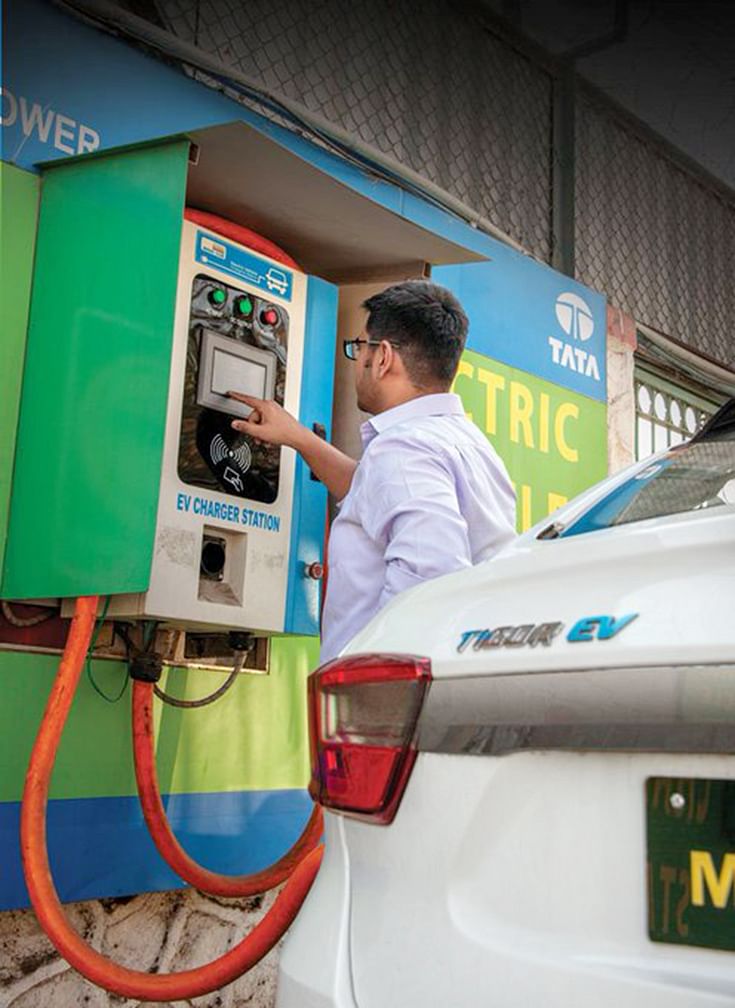Power Ministry amends EV charging guidelines and specifications
The ministry says the revised guidelines and specifications for charging infrastructure shall supersede the earlier guidelines and standards issued by the Ministry of Power on December 14, 2018.
The government of India has started addressing the ecosystem revolving around electric vehicles (EVs) in a phased manner. To further make progress towards setting up charging infrastructure, the Power Minister R K Singh yesterday announced the revised guidelines that the government says will address the concerns of EV owners.
The government aims to have at least one charging station to be available in a grid of 3km x 3km in the cities and one charging station at every 25km on both sides of highways/roads. All mega cities and expressways connected to these mega cities to be taken up for coverage in first phase, other big cities to be taken up in second phase. For inter-city travel, fast charging station will be installed at every 100km and the Bureau of Energy Efficiency (BEE) has been nominated as the Central nodal agency to facilitate installation of charging infrastructure.
In a major decision to give a boost to EVs in country, the Union Minister of State for Power and New & Renewable Energy (IC) and Skill Development & Entrepreneurship, RK Singh approved the amendments for EV charging guidelines and specifications. The ministry says the revised guidelines and specifications for charging infrastructure shall supersede the earlier guidelines and standards issued by the Ministry of Power on December 14, 2018.
RK Singh said that revised guidelines are more consumer friendly as they incorporate a number of suggestions received from various stakeholders. “We have tried to address the concerns of EV owners in new guidelines.”
Further, the ministry says assuming that most of the charging of EVs would take place at homes or at offices where the decision of using fast or slow chargers would rest on the consumers, it has been clarified in the guidelines that private charging at residences/offices shall be permitted and DISCOMs may facilitate the same.
As far as the public charging stations (PCS) are concerned, it has already been clarified by Ministry of Power that setting up of PCS shall be a de-licensed activity and any individual/entity is free to set up public charging stations, which has also been reiterated in the guidelines, subject to the conditions as specified in the guidelines.

Chargers of different standards specified
The guidelines also specify the type of chargers of different standards (CCS, CHAdeMO, Type-2 AC, Bharat AC 001) which the Ministry of Power says will ensure that the PCS owners have the freedom to install the chargers as per the market requirement.
To keep the PCS technology agnostic, it has been provided that any other fast/slow/moderate charger as per approved DST/BIS standards whenever notified can also be installed at the PCS. Thus, the guidelines provide an extensive flexibility while ensuring a democratic choice to both EV owners and PCS providers to install the type and number of chargers.
The Bureau of Energy Efficiency has been nominated as the central nodal agency, and a provision for state nodal agency for the respective states has been provided for in the guidelines. The roles of the respective nodal agencies have been specified. These agencies will act as the key facilitator in installation of charging infrastructure for EVs throughout the country.
The tariff to be charged, from public charging stations as well as from domestic consumers for domestic charging, by the DISCOMs and the service charges to be charged by these PCS from EV users have also been covered in the guidelines. It has been provided that the domestic charging shall be akin to domestic consumption of electricity and shall be charged as such. However, in case of PCS, it has been provided that tariff for the supply of electricity to PCS shall be determined by the appropriate commission in accordance with the Tariff policy issued under section 3 of Electricity Act 2003, as amended from time to time.
As far as the service chargers at PCS are concerned, while it has been clarified that charging of EV is a service, to ensure that the incentives (financial or otherwise) provided to PCS owners in installation of charging stations are transferred to the EV owners, it has been provided that the appropriate agency/commission shall fix the ceiling of service charges in such cases.
RELATED ARTICLES
Cosmo First diversifies into paint protection film and ceramic coatings
The Aurangabad, Maharashtra-based packaging materials supplier is leveraging its competencies in plastic films and speci...
JSW MG Motor India confident of selling 1,000 M9 electric MPVs in first year
The 5.2-metre-long, seven-seater luxury electric MPV, which will be locally assembled at the Halol plant in Gujarat, wil...
Modern Automotives targets 25% CAGR in forged components by FY2031, diversifies into e-3Ws
The Tier-1 component supplier of forged components such as connecting rods, crankshafts, tie-rods, and fork bridges to l...






 By Autocar Professional Bureau
By Autocar Professional Bureau
 05 Oct 2019
05 Oct 2019
 9222 Views
9222 Views














